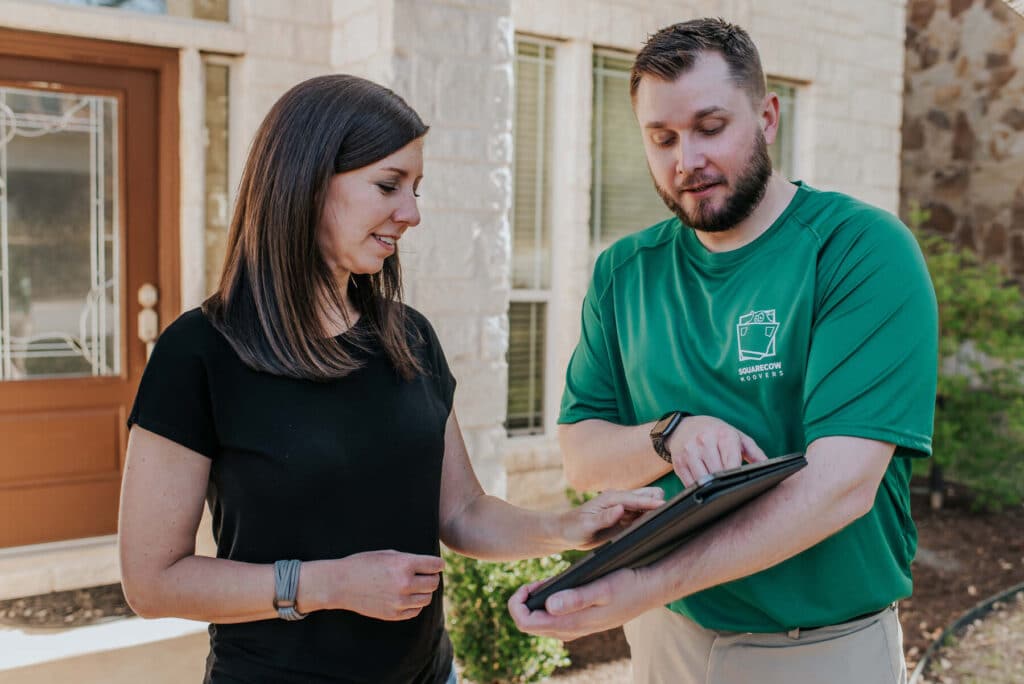Moving out of your family home can bring stress over finances or adjusting to new surroundings. This guide offers a roadmap for anyone ready to embrace independent living, from college graduates to those simply seeking a change. In addition to this guide, we also provide professional moving services to help with a smooth transition into your dream home.
How to Move Out on Your Own
When moving out on your own, prepare yourself financially and emotionally, learn basic life skills, and gather items for survival. Next, find a place that meets your preferred living situation and budget, and get professional movers to transport your things. Finally, cultivate new routines and responsibilities, build connections within your new community, and embrace personal growth.

While you may encounter challenges when leaving your childhood home, these concrete steps can make the move more fulfilling.
| Aspect | Action Steps |
| Preparation phase | Build an emergency fund, create a budget Assess independence motivation, develop coping strategies Learn household chores, stock basic supplies and tools |
| Living space selection and moving in | Research neighborhoods, compare rent prices Coordinate logistics, budget for various moving expenses Unpack important items first, set up utilities |
| Adaptation to a new place | Establish daily schedules, manage bills and finances Meet neighbors, maintain old friendships Try new activities, celebrate milestones |
1. Laying the Groundwork for Independence
Organizing finances, preparing yourself emotionally, and gaining key life skills can build confidence to handle responsibilities confidently without family backup.
Building Your Fiscal Foundation
Establish a strong financial base before moving out to provide security and avoid asking your family for extra money.
- Outline your estimated income and projected expenses to understand your monthly financial needs and identify areas for saving.
- Save an emergency fund or at least three to six months’ worth of living expenses.
- Start responsibly using a credit card to build a positive credit history.
Navigating the Shift Emotionally
Acknowledging and addressing potential emotional challenges beforehand can help you cope with the changes.
- Establish clear communication about expectations and boundaries to ease the transition for you and your family.
- Plan ways to stay connected (video calls, visits).
- Practice making decisions independently and tackling everyday challenges.
Gaining Life Skills and Basic Provisions
Having these skills and basic provisions in place results in self-sufficiency, especially when your parents aren’t around to assist you anymore.
- Learn to prepare simple, nutritious meals and plan your weekly groceries to save money.
- Familiarize yourself with tasks such as changing a light bulb or troubleshooting basic appliances.
- Stock basic medical supplies for minor injuries and illnesses, along with a small set of tools (hammer, screwdrivers, pliers) for everyday household tasks.

2. Securing and Settling into Your New Space
Selecting your new home, managing costs, and planning moving day promotes a safe transition to independent living away from family.
Finding Your Ideal Living Space
Careful consideration of your needs and preferences will help you find a home that supports your new independent lifestyle.
- Determine your priorities in a living space (budget, location, number of bedrooms, amenities, pet-friendliness)
- Explore different areas to find one that aligns with your lifestyle, commute needs, and access to amenities like grocery stores or public transportation.
- Gather the necessary documents, such as proof of income and credit reports, and be prompt and thorough in your application.
Determining Moving Costs and Moving Professionals
Being aware of the costs and options available will help you budget effectively and execute a smoother move.
- Beyond rent and utilities, factor in security deposits, first and last month’s rent, and utility hook-up fees.
- Get quotes for your moving needs, whether it’s for local moving, long-distance moving, packing services, or labor-only services.
- Prepare a budget for extras, such as additional travel, parking permits, and snacks.
Facilitating Moving Day and Setting Up
From organizing your belongings to updating your address, these tasks can provide a sense of stability and help you get organized quickly.
- Group similar items together and clearly label each box with its contents and the room it belongs in.
- Focus on setting up your bedroom (bedding, clothing), bathroom (toiletries, towels), and kitchen (basic cooking utensils, food) to feel settled and functional in your new space.
- Change your address for mail, bills, and delivery services.
3. Thriving as an Independent Adult
Independence gives you the chance to develop new routines, connect with others, and grow as a person.
Cultivating New Routines and Responsibilities
Developing structured routines and taking ownership of your future self will foster stability and personal growth.
- Create a routine for waking up, working/studying, exercising, cooking, and sleeping to manage time effectively.
- Develop a system for cleaning, laundry, grocery shopping, and bill paying to maintain a comfortable living environment.
- Schedule time for activities that promote your physical and mental health.
Building Your New Community
Meeting new people and staying socially connected can help fight loneliness and add meaning to your new life.
- Join local groups or activities that match your interests.
- Get to know your neighbors by introducing yourself or helping with small favors.
- Attend community events and visit local establishments.
Embracing Personal Growth and New Experiences
Seizing these opportunities for self-discovery can solidify your identity as an autonomous individual.
- Set simple goals, like learning to cook a new meal or reading a book per month.
- Say yes to new experiences, such as attending local workshops or taking classes in areas like money management.
- Reflect on what went well and what to improve by keeping a journal or talking with a trusted friend.

Related Questions
How to Determine the Right Time to Move Out of My Family’s Home?
You might be ready to move out if you have a steady income, can manage basic chores, and feel prepared to handle responsibilities. If you crave privacy, want independence, or need to live closer to work or school, these are also strong reasons to move out.
Why Am I Scared to Move Out?
Feeling scared about moving out is normal because change can be uncomfortable. You might worry about money, making mistakes, or being lonely without your family.
How to Overcome Potential Challenges in Moving Out?
To overcome potential challenges in moving out, thorough planning is the key, from budgeting to securing your new space. Don’t hesitate to leverage the expertise of professional movers to handle the logistical burdens. Make a checklist of the skills you need and practice them before leaving.
Conclusion
Taking the leap and moving out of your family home brings a sense of accomplishment and opens doors to personal growth. From packing to moving and unpacking, our professional residential movers can do the heavy lifting for your move, letting you build the space you’ve envisioned.
